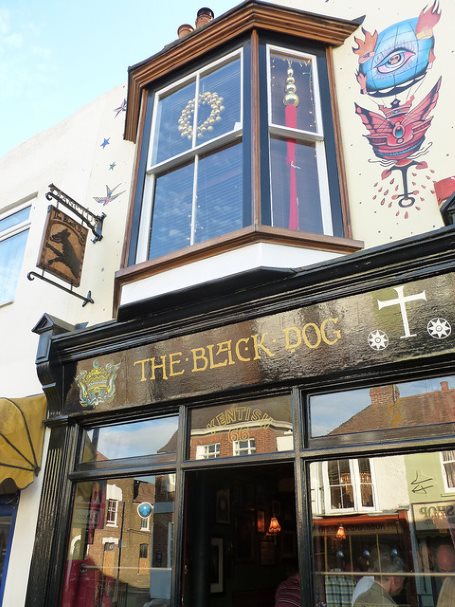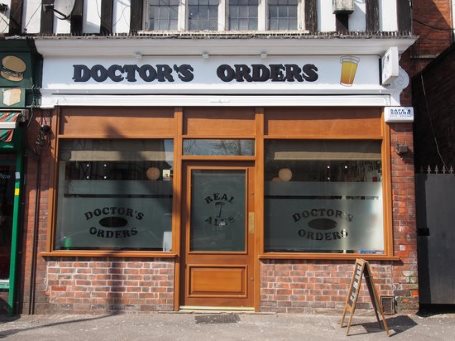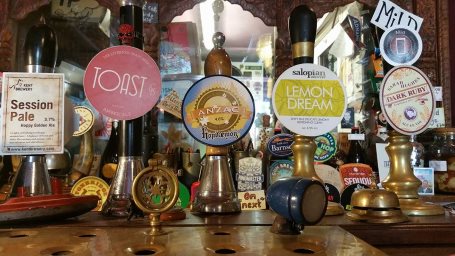Picture a typical British pub in the 21st century. What does it look like? Well, it probably offers an array of big-brand beers, lagers and ciders, plus wines and spirits. It probably has music. It might have noisy electronic gaming machines. It is likely to offer food; indeed, the rise of the gastropub is one of the big stories in the pub world in recent years. And there’s a good chance that it will have a large TV screen (or several) showing major sporting events. It might have a coffee machine for customers who’d rather have a cappuccino than a pint. And if there’s space there might be a family area outside.
Now imagine a pub that has almost none of these things. It’s small. Tiny, in fact. It is basically one room. It does nothing except serve drinks, mainly real ale, and perhaps a limited selection of bar snacks. It’s called a micropub, and there are a lot of them about.
Changing Britain’s Pub/Bar Licensing Laws
It all started in 2003, when the then Labour government changed Britain’s licensing laws to make it easier for anyone to open a pub. Under the new act, which became effective in 2005, applications to sell alcohol would go to local councils, rather than the courts, making it harder for objections to be made, and the whole process was made considerably less expensive. This act inspired Martyn Hillier to open the Butcher’s Arms in his home village of Herne, Kent, in 2005. Measuring three metres by four and occupying the front room of a former butcher’s shop, the Butcher’s Arms took the idea of the pub right back to basics, stripping out all the accoutrements of the modern pub and giving customers instead a simple set-up: a room, and some ale, leaving it up to the punters to make their own entertainment, which they proceeded to do by... talking to each other. Hillier showed that with the micropub, the pub owner benefits by having very low overheads (no music licence to pay for, for instance), while the customers benefit from lower prices and a convivial, homely atmosphere.

The Micropub movement (micro-wave)
With the Butcher’s Arms, the micropub movement – what’s been called a “micro-wave” - was born, and before long micropubs were opening up around the country in tiny spaces – former taxi offices, railway station waiting rooms, old shops, hairdressing salons. To begin with, they were concentrated in Kent, but soon began to spread across the country. Last year the Financial Times reported that there were more than 100 micropubs across the UK; now, the Micropub and Microbrewery Association’s website lists 256. Mike McWilliam, the owner of the Black Dog, a micropub in Whitstable, Kent, told the FT last year: “It’s not rocket science — just take the good bits from existing pubs and remove the bad ones.”
What Are Micropubs?
Micropubs, then, are small, quirky and idiosyncratic (one in Margate, Kent, is called Ales of the Unexpected). An application to the local council for a “change of use” is normally required; in Chatham, Kent, an application has been made to open a micropub in premises in an arch beneath a railway viaduct. This would involve a change of use from its previous function as a public convenience. Another micropub in Nottingham is called Doctor’s Orders, as it operates from a room that used to be a pharmacy.

The Rise of the Microbrewery
In parallel with the rise of the micropub, we have seen the rise of the microbrewery – small breweries that cannot compete with the giants in terms of quantity but which offer a much wider range of flavoursome ales brewed in small batches; these brews, sometimes called craft beers, are perfect for micropubs, which typically offer a changing selection of four or five cask-conditioned ales (many will allow customers to taste the beer before buying). You are unlikely to find a micropub that sells lager, which is regarded among the micropub fraternity as a fizzy and noxious brew, though many will serve proper cider and perhaps a small selection of wines.

Micropubs Tips – ‘Keep it Small, Keep it Simple’
In keeping with its origins, the original micropub, the Butcher’s Arms, is furnished with tables made from butchers’ blocks. This rudimentary aesthetic is typical of the aims of the movement, which are summarised in the motto: “Keep it small, keep it simple” (abbreviated to “KIS KIS”). So micropub owners will need to be careful about how they furnish their premises, if they are to stay true to the spirit of the movement; shiny chrome chairs and glass-topped tables are unlikely to go down well with real-ale drinkers in search of an authentically quirky micropub. So perhaps it would be best to stick to traditional pub furniture designs, and to mix them up, to create a properly “organic”, rough-and-ready feel. Comfort is important, but what’s crucial is that micropub furniture should be simple, functional, sturdy and unobtrusive: tables and chairs in good, honest materials such as solid wood and cast iron.
The rise of the micropub, then, offers a small glimmer of hope in an age of apparently remorseless pub closures. As pubs run by the big commercial corporate chains close down because they are unprofitable, perhaps micropubs will fill part of the gap left by their absence: these are real local pubs selling real local ales, places where conversation can flourish without the intrusion of blaring music or the clang of gaming machines.
Behind Every Micropub There is a Story Worth Telling
The rise of the micropub comes at a time when British consumers are seeking more authentic alternatives to the mass-produced offerings they find at supermarkets and in their identikit high streets: in everything from food to furniture, they are increasingly seeking the handmade, the original, the quirky: something with a story behind it. And behind every micropub there is doubtless a story worth telling - and someone who will be happy to tell it.
Related reading
Here’s a few of our related stories which we hope you will find interesting.
- Bar furniture buying guide; tips and advice
- How pubs can join in with English Tourism week
- Discover how bar furniture can turn the traditional pub into the third office
Written by David Cheal